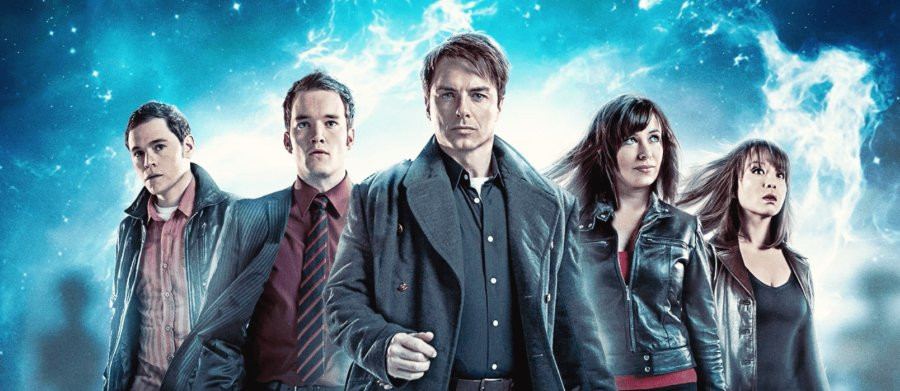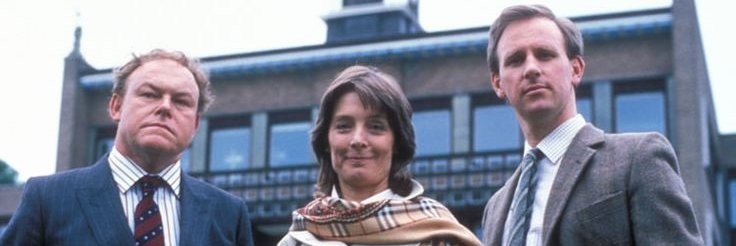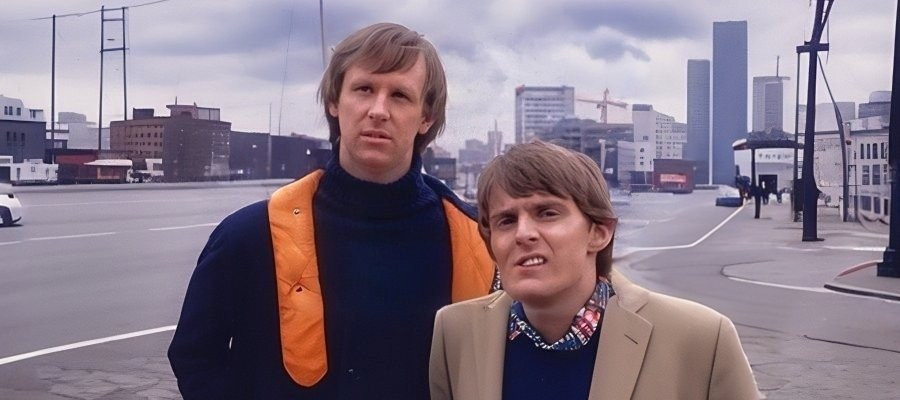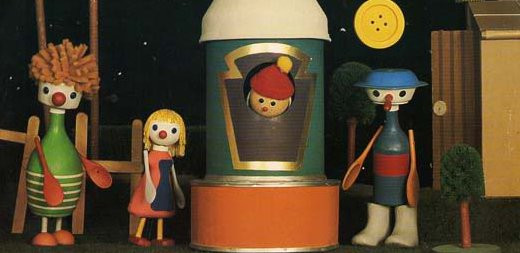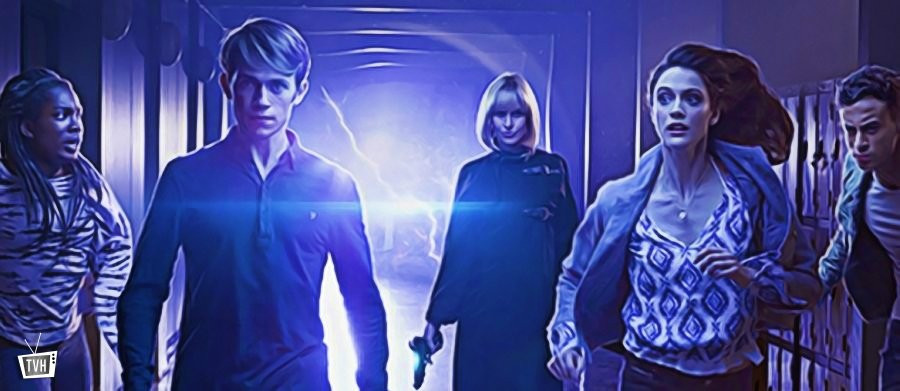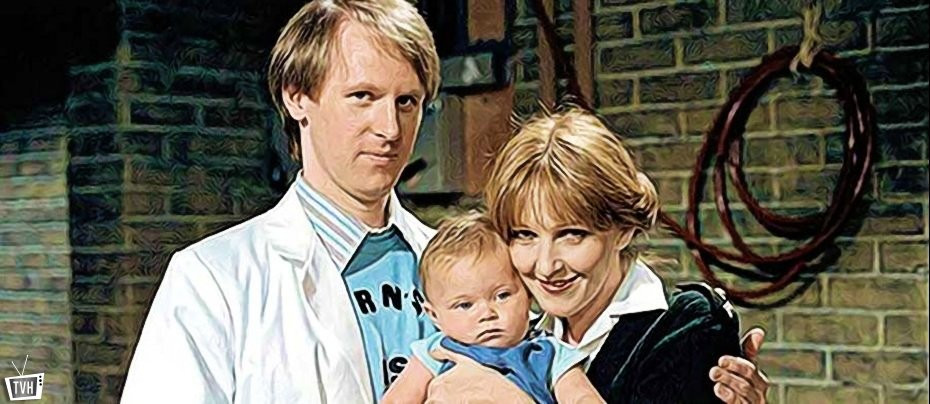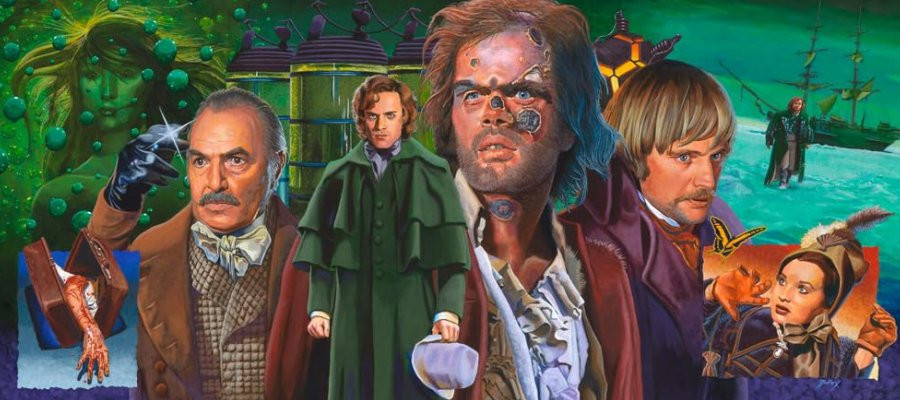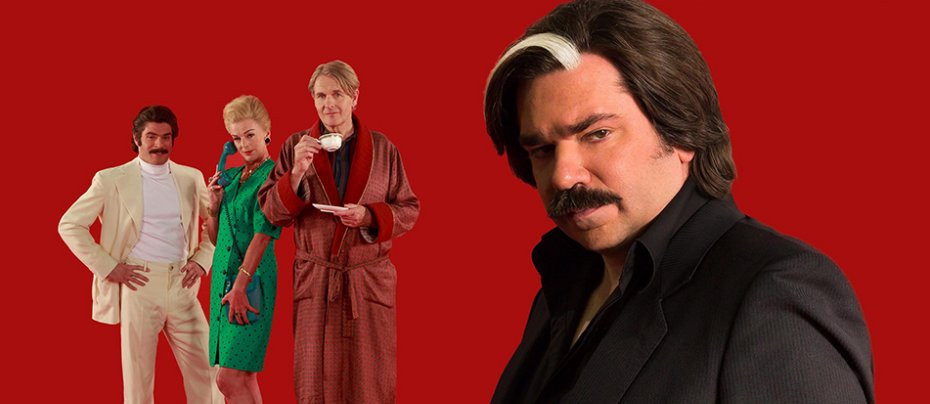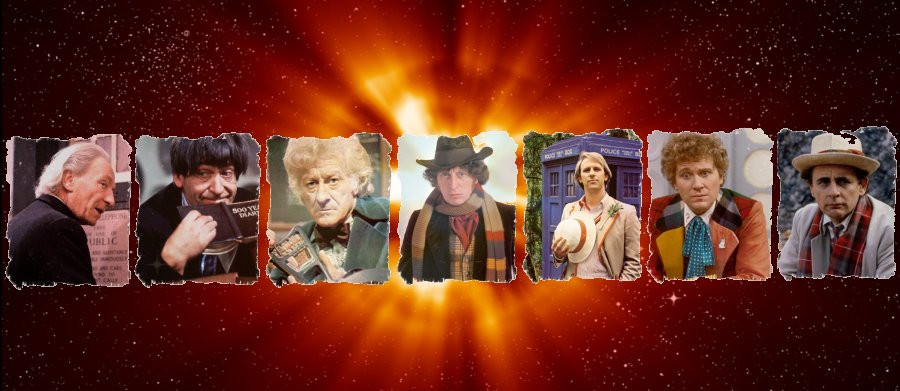Evolution of the Doctor:
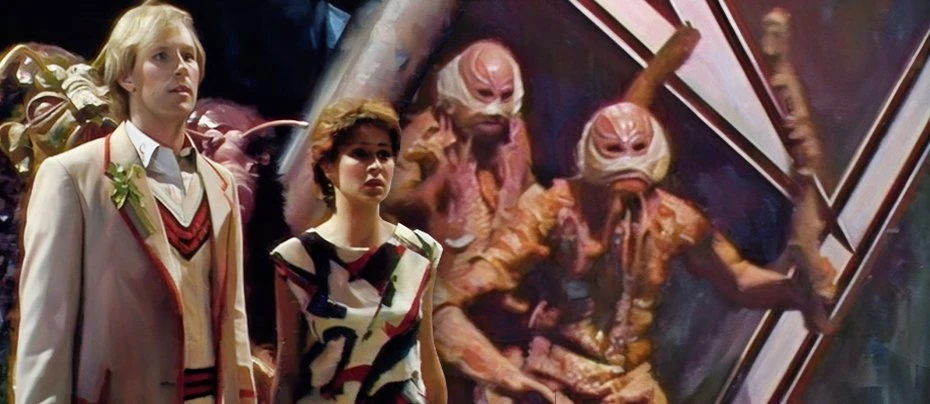
Doctor Who's 'Castrovalva' and 'Frontios' as Descendants of 'Full Circle'
It has long been recognised that the Doctor Who serials 'Full Circle' (1980), 'State of Decay' (1980) and 'Warriors' Gate' (1981) form the 'E Space Trilogy' where the Doctor's TARDIS falls into a different universe. There are also similarities where, for example, 'State of Decay' draws on traditional vampire legend just as 'Full Circle' features the myth of Mistfall. However, as this article will argue, Christopher H. Bidmead's written serials 'Castrovalva' (1982) and 'Frontios' (1984) connect with Andrew Smith's 'Full.Circle' (1980), edited by Bidmead, whether the links were intentional or not.
'Castrovalva' can be compared with 'Full Circle' and its idea of history. There is the idea that all is not as it seems with Mistfall and that humanoid life being unable to exist on the surface of the planet is a myth. And in 'Full Circle' there was the notion of the populace of the Starliner descending from ancestors from the planet Terradon who had crashed on Alzarius. However, in reality the original populace of Terradon on board the Starliner had been killed. Those on the Starliner at the time of the serial were descended not from the ancestors they believed to be but rather from the Marshmen, inhabitants of Alzarius, and these humanoids’ ancestors had never been to Terradon. The humanoid populace of the Starliner had evolved from the marsh creatures with this serial drawing on the soft science of anthropology. In 'Castrovalva', however, the Doctor learns that Castrovalva is a fiction and that the whole history contained in volumes was an invention. The Castrovalvan ancestors, a tribe of warring hunters, never really existed and the town is created out of hard science, a trademark of Bidmead's. So there is the difference of the past read mistakenly (though the populace are left in a state of delusion) and in the other there never having been a real history and of history as deliberately falsified.
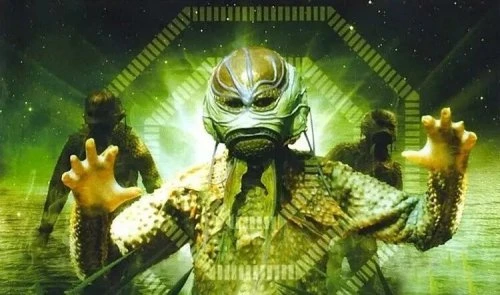
Indeed, in 'Full Circle' there is a 'great hall of books' and a 'store of knowledge' about how to embark on the Starliner, however the important knowledge about the true history is kept classified in the system files. In 'Castrovalva' there is the important presence of a library with the volumes of the History of Castrovalva kept by the librarian Shardovan. These books are available for all, unlike the system files, but also unlike in the system files the truth is not plainly written.
Towards the end of 'Full Circle' the Doctor reveals that the Marshmen will eventually learn to read with the revelation that they are the Alzarians' ancestors. The Castrovalvans, meanwhile, are at first seen in hunting garb and the Doctor is surprised to learn that they read with their then removing their head garments to reveal humanoid faces. There is therefore the similar idea of those who are expected not to be able to read actually reading.
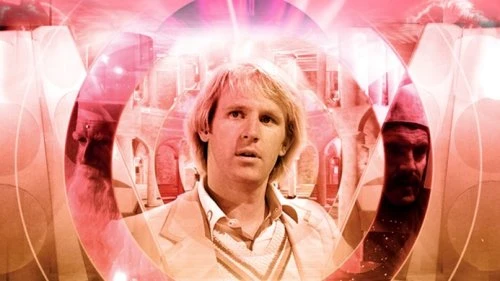
The notion of the circle in the title 'Full Circle' is present in a different way in 'Castrovalva'. In 'Full Circle' there is the idea that one returns to the original position where those on the Starliner are descendants of the Marshmen. However, in 'Castrovalva' the Doctor and his assistants literally go 'round and round and back to the square' unable to exit the town. In this way, the serial bears similarities to John Flanagan and Andrew McCulloch's 'Meglos' (1980) with its time loop where time repeats itself (a chronic hysteresis). However, as the format dictates, in 'Castrovalva' the Doctor and his assistants learn the truth about the town's creation out of hard science and are able to depart for future adventures.
There are also comparisons to be made between 'Frontios' and 'Full Circle'. In both, the Starliner and the colony ship have crash-landed in the past. In 'Frontios' that past is one generation unlike the extremely long span in 'Full Circle'. While in 'Full Circle' the original populace of the Starliner were all killed and the present populace are the descendants of the alien Marshmen from 40,000 generations ago, in 'Frontios' the colony ship's system failures and subsequent crash were caused by the monstrous Tractators and there is a firm distinction between monster and human(oid).
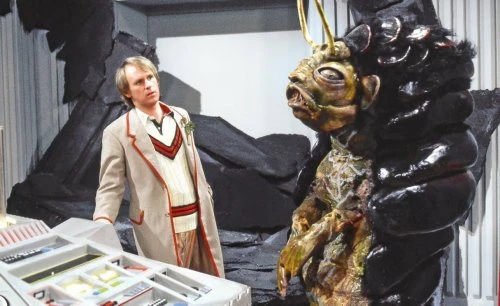
It is worth considering the structure of the societies in 'Full Circle' and ‘Frontios’. In 'Full Circle', there is a self-perpetuating oligarchy where a new member is recruited to fill any gaps. The society is a stratified one with a designated elite. In 'Frontios' there are the rulers in a type of royal family and a military hierarchy: the ruler Captain Revere, whose portrait looms over the state room, and later his son Plantagenet, whose title conjures up the royal house of the 12th to 15th centuries in England.
Furthermore, as noted above, in 'Full Circle' the system files are classified with the First Decider being the only one privy to their contents. One may think of the way certain documents are left sealed in our own world (such as those pertaining to the assassination of JFK) leading to various conspiracy theories. In 'Frontios' there is also a veil of secrecy surrounding the mysterious disappearances. Chief Orderly Brazen witnessed Captain Revere's being sucked into the ground and arranged for a corpse to be used at a state funeral. But it is Chief Science Officer Range who collects and stores information about 'Deaths Unaccountable'.
This leads into the idea of keepership. There is the Keeper of the serial's title in 'The Keeper of Traken' (1981), by Johnny Byrne and script edited by Bidmead, however in that instance the Keeper is not one of texts unlike in 'Full Circle' where there is 'the Keeper of the system files', the First Decider. The Decider culture is one that constantly renews itself much like the Keepership in 'Traken' so that when one person dies another takes his/her place but in 'Full Circle' it is also the contents of the system files which are passed down. In 'Castrovalva' the Portreeve may be doorkeeper to the world but, as we have seen, it is Shardovan the librarian who is Keeper of the books, and in 'Frontios' Mr Range, is the keeper of records.
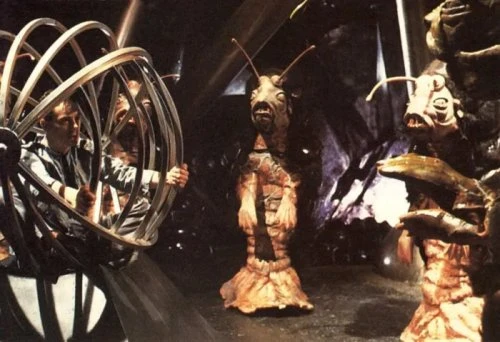
There are also outcasts in both 'Full Circle' and 'Frontios'. These are people who live outside the system of law and order. In 'Full Circle' they are known as Outlers and are lead by Varsh, they are chased through foliage like Nyssa and Tegan in the later 'Castrovalva' but here for stealing river fruit, and as young adults they are ultimately forgiven and taken back into the Starliner society. In 'Frontios' the outlaws are known as Deserters or Retrogrades. The Orderlies, as their title suggests, aim to impose order to a situation that could easily erupt into disorder. For example, the colonists' food is rationed and there is not much in the way of medical help for those injured by the bombardments. In a reversal to 'Full Circle's outlaws Cockerill goes from being an Orderly to a Deserter, taking food with him and as Brazen says 'it's not easy to live within the system but to live outside of it takes more than you've got'. And Cockerill is attacked for his food by other deserters and only gains leadership when it seems as though he survived from being sucked beneath the earth.
So, this article has drawn out comparisons between a serial which Bidmead script edited and two which he wrote. While 'Full Circle' can be described as a more typical monster story the less typical 'Castrovalva' connects with it as does the more traditional 'Frontios'. Just as ‘Full Circle’ concerns the theme of evolution, there are descendants to that Doctor Who serial. Without further investigation, it is impossible to tell what parts of ‘Full Circle’ are Andrew Smith’s and what parts are a result of Bidmead’s editing. Anyhow, Bidmead may have been thinking of ‘Full Circle’ when he wrote the latter serials or may not have intended the comparisons at all.
Further Reading:
Doctor Who In Vision 48 Full Circle edited by Peter Anghelides and Justin Richards (1994); Doctor Who: Castrovalva by Christopher H. Bidmead (London: Target, 1983); Doctor Who: Frontios by Christopher H. Bidmead (London: Target, 1985); Doctor Who In Vision 55 Castrovalva edited by Anthony Brown (1995); Doctor Who In Vision 73 Frontios edited by Anthony Brown (1997); Doctor Who: Full Circle by Andrew Smith (London: Target, 1982); Black Archive 15 Full Circle by John Toon (Obverse Books, 2020)
Thanks go to Lewis Baston for helpful suggestions.


